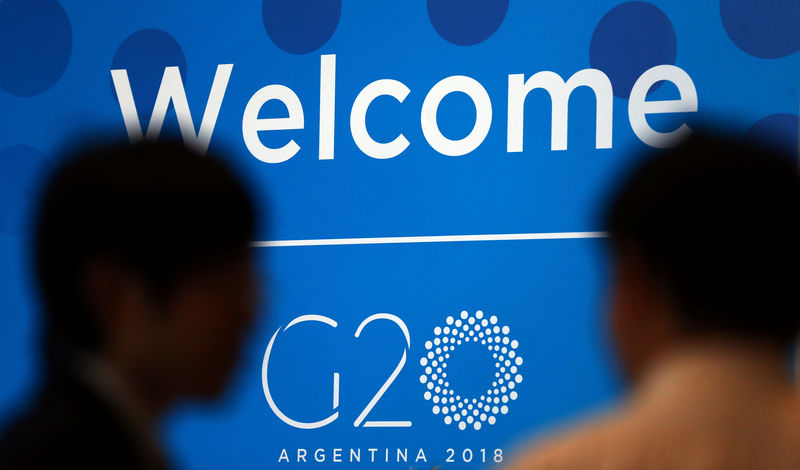By Francesco Canepa
BUENOS AIRES (Reuters) - The world's financial leaders gathering in Argentina on Monday are likely to stop short of any specific action aimed at regulating cryptocurrencies such as Bitcoin, amid discord over the approach, sources at the summit told Reuters.
Wild swings in the price of Bitcoin, the best known of a myriad of digital currencies issued by private companies, cyber heists involving such assets, and fears they may be used for crime have raised calls for concerted actions by global regulators.
Finance ministers and central bankers from the world's 20 largest economies meeting in Buenos Aires will be told on Tuesday that such "crypto assets" do not threaten financial stability but can serve to launder money or finance terrorism and hurt consumers who buy them.
However, no action is expected to follow at the summit as policymakers have yet to agree on a common strategy to tackle the issue and some countries, including the United States, are wary of new regulation after a decade of rule-making in the wake of the financial crisis of 2008-2009, the sources said.
This pushes back the prospect of a global rule book on the matter, something that some regulators say is needed to tackle a phenomenon that transcends borders.
"It's unlikely that the G20 will ask for new regulation," one of the sources said.
A communique summarizing the thinking of summit participants was expected to be light on substance, merely promising vigilance and further study, the sources said.
This is in line with a recommendation by Mark Carney, the chair of the standard-setting body, the Financial Stability Board, who in his usual letter to summit participants called for "further international coordination" and "enhanced monitoring", reflecting division among regulators.
Some countries, such as France, have proposed taking specific steps, such as creating the legal status of "crypto assets service providers" as a first step for regulating the sector.
Others reject the notion that such tokens should be treated as financial assets at all and fear that regulating them would give them a degree of legitimacy.
"They'd put a big sign on their website saying that they're regulated and therefore sanctioned by the authorities," another source said.
This may leave the onus on national regulators to act, opening potential opportunities for providers of crypto currencies to game the rules by moving their operations to other jurisdictions.

"Unless G20 countries get it right, we may give the opportunity to other countries to fill that space," said Mercina Tillemann-Dick of industry group the Global Blockchain Business Council, speaking at a separate event in Buenos Aires.